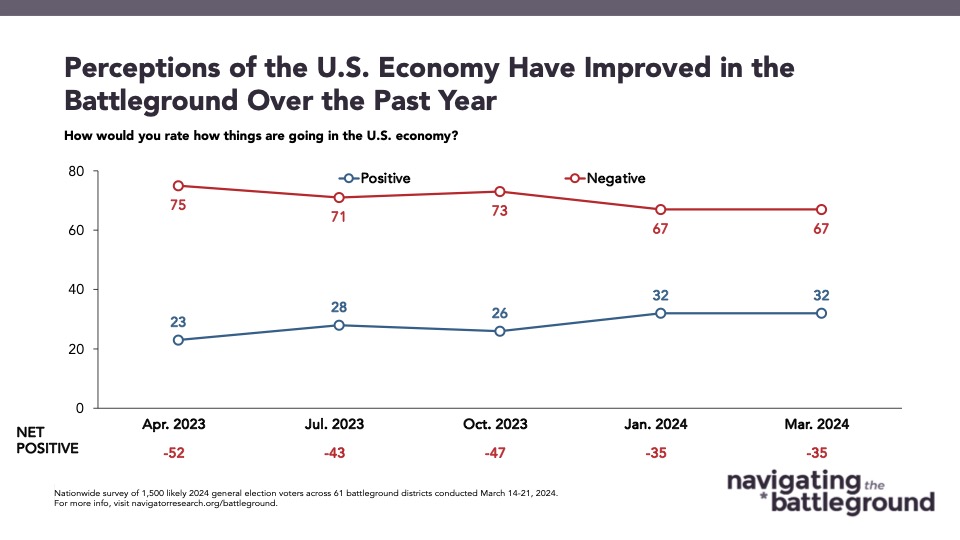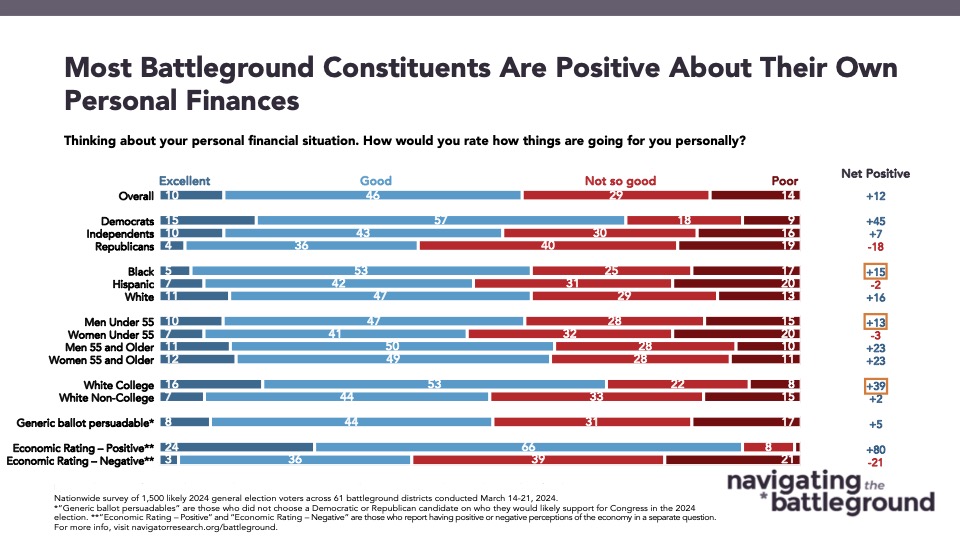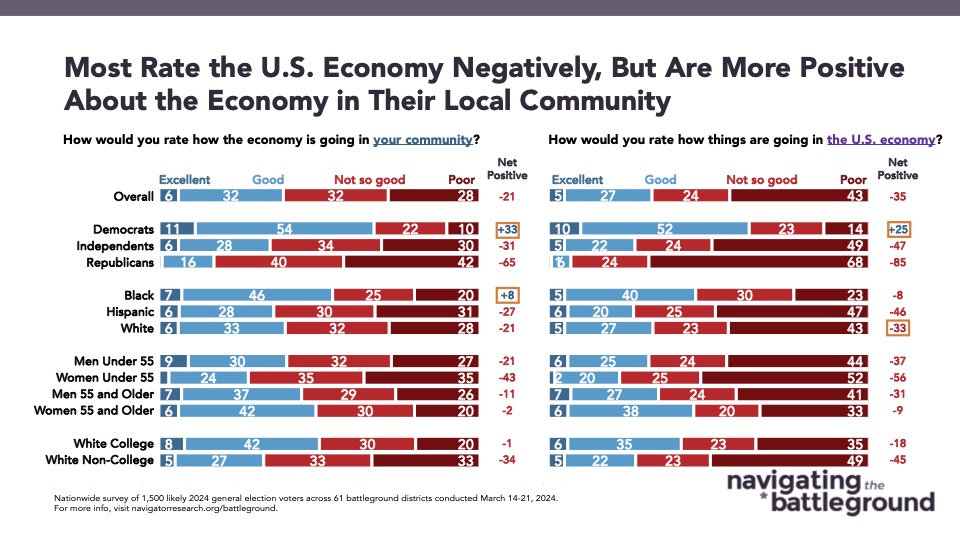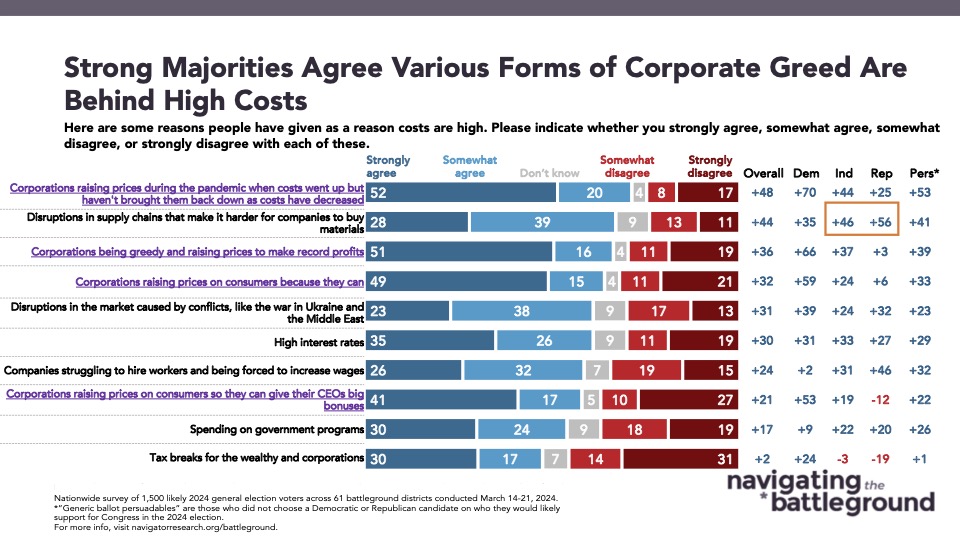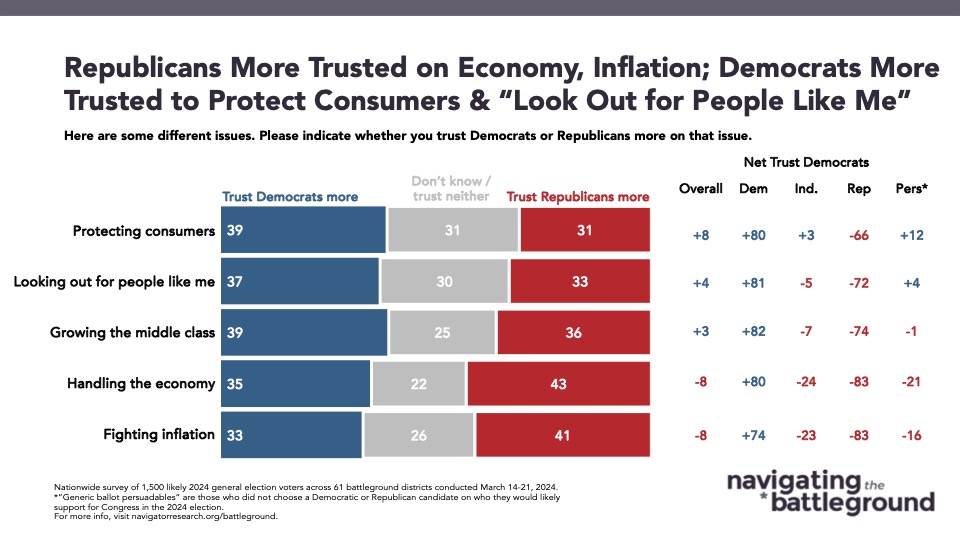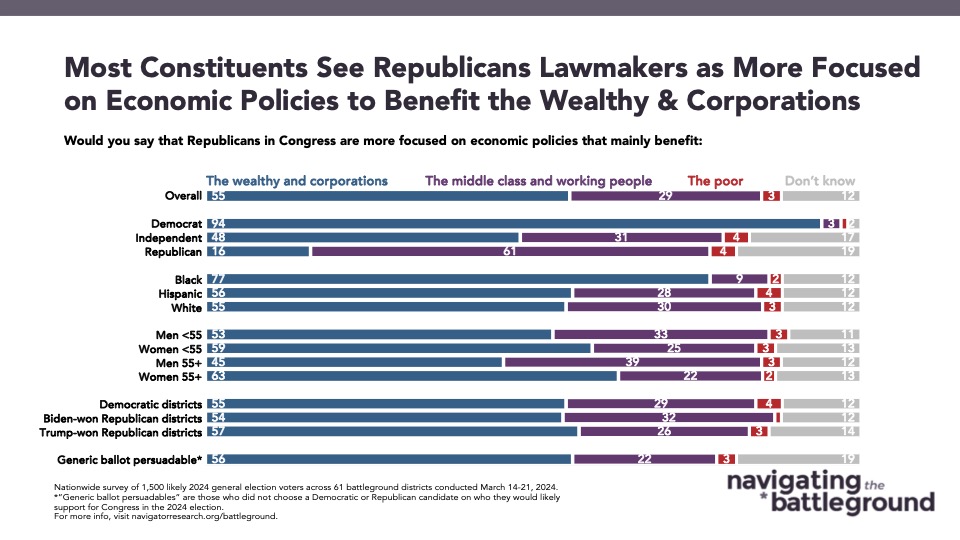Poll: Blame for High Costs
This Navigator Research report contains polling data exploring perceptions of the state of the economy, who battleground constituents blame for rising costs, and how those in the battleground rate elected officials on their handling of the economy. Battleground districts include House districts where constituents are closely divided along conservative and progressive ideological lines.
Battleground constituents are still down on the state of the economy, but their outlook has improved.
The share of battleground constituents who believe the economy will be worse next year has declined by 16 points since last October. 50 percent of battleground constituents say the economy will be better a year from now (23 percent) or that it will be the same (27 percent); 31 percent say the economy will be worse a year from now, down from 47 percent who said it would be worse in a year in our October survey.
- A majority of battleground constituents have a positive outlook about their personal financial situation (56 percent positive) while 44 percent rate their situations negatively.
- While two in three rate the state of the national economy negatively (net -35; 32 percent positive – 67 percent negative), battleground constituents are slightly more positive about the economy in their local community (net -21; 39 percent positive – 60 percent negative).
At least two in three battleground constituents blame corporate greed for high costs.
72 percent agree that “corporations raising prices during the pandemic when costs went up but haven’t brought them back down as costs have decreased” is to blame for high costs, including more than four in five Democrats (84 percent), seven in ten independents (70 percent), and three in five Republicans. Two in three constituents also blame “corporations being greedy and raising prices to make record profits” (66 percent) and “corporations raising prices on consumers because they can” (64 percent) for high costs. By comparison, a smaller share of battleground constituents blame spending on government programs for rising costs (54 percent).
- Our national research has shown a 15-point uptick in the share of Americans overall who blame “corporations being greedy and raising prices to make record profits” as a “major” cause of inflation over the past two years.
Republican lawmakers in battleground districts have worse approval ratings on the economy than Democratic lawmakers in battleground districts.
While people have net negative economic job ratings for both Democratic and Republican lawmakers, Democratic lawmakers are underwater by 11 points (29 percent positive – 40 percent negative) compared to Republican lawmakers who are 18 points underwater among their constituents (25 percent positive – 43 percent negative). While Republicans have held advantages nationally on handling the economy, specifically-named Republican lawmakers trail Democratic lawmakers on economic approval.
- Party trust to handle a variety of economic issues is split among constituents in the battleground, with the Democratic Party holding narrow advantages on “protecting consumers” (net +8; 39 percent Democrats – 31 percent Republicans), “looking out for people like me” (net +4; 37 percent Democrats – 33 percent Republicans), and “growing the middle class” (net +3; 39 percent Democrats – 36 percent Republicans), while Republicans hold high single-digit advantages on “handling the economy” (net -8; 35 percent Democrats – 43 percent Republicans) and “fighting inflation” (net -8; 33 percent Democrats – 41 percent Republicans).
- By a near two-to-one margin, a majority of battleground constituents believe that Republicans in Congress are more focused on economic policies that benefit the wealthy and corporations (55 percent) than middle and working class people (29 percent). In our July 2023 battleground research, 64 percent of those in the battleground believed that Republicans’ economic policies focus too much on helping the wealthy and corporations.

